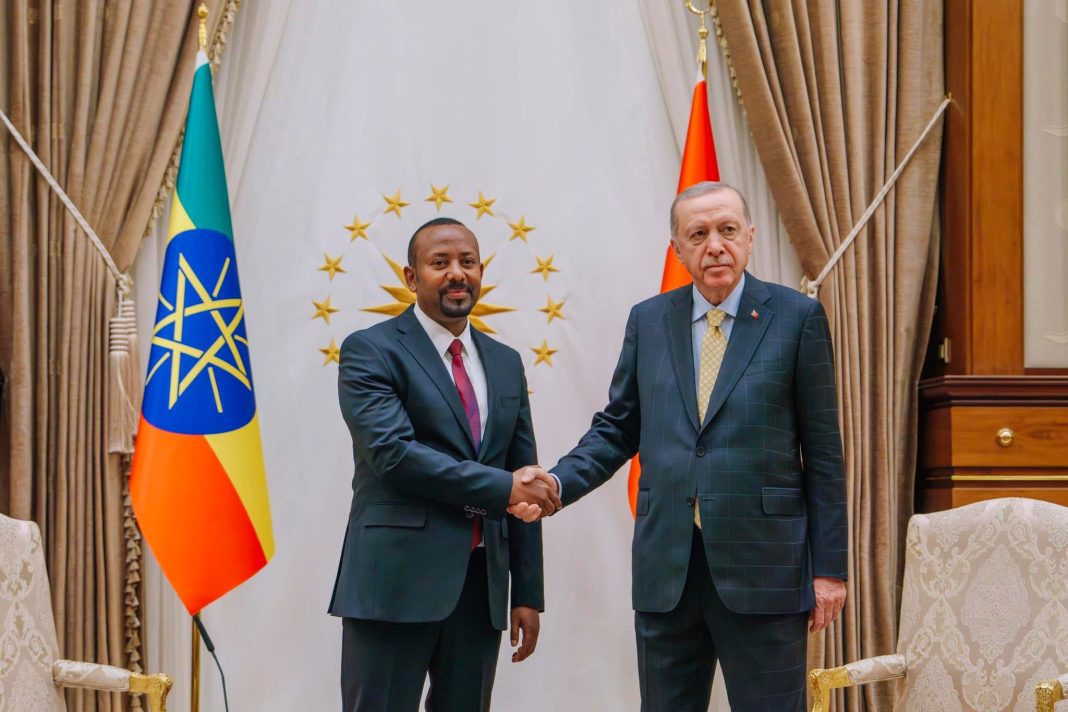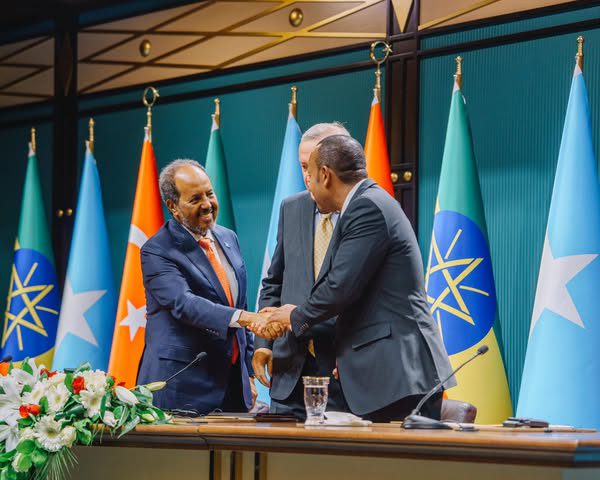Addis Ababa – Ethiopian Prime Minister Abiy Ahmed and Somali President Hassan Sheikh Mohamud signed the historic Ankara Declaration on December 11, 2024, during a trilateral summit hosted by Turkish President Recep Tayyip Erdoğan in Ankara. The agreement marks a significant milestone in fostering cooperation between the two Horn of Africa nations.
The leaders pledged to respect each other’s sovereignty, unity, and territorial integrity, emphasizing adherence to international law and African Union principles. They acknowledged the potential benefits of Ethiopia’s access to and from the sea while upholding Somalia’s territorial integrity. Both sides committed to resolving disputes and focusing on shared development goals.
Key Points of the Agreement
Central to the declaration was Ethiopia’s assured access to the sea, which was framed as a mutual economic opportunity. The two countries agreed to begin technical negotiations in February 2025, with a four-month deadline to finalize arrangements, including bilateral agreements under Somalia’s sovereign authority. These agreements aim to establish reliable and secure sea access for Ethiopia through mechanisms such as contracts or leases.
The declaration also recognized the sacrifices made by Ethiopian soldiers in African Union missions in Somalia. It expressed Somalia’s gratitude for Ethiopia’s contributions to stabilizing the region and combating al-Shabaab militants.
Turkish Mediation Recognized
President Erdoğan’s role as mediator was highlighted in the declaration, with both nations expressing appreciation for Türkiye’s initiative and ongoing commitment. The agreement also welcomed Türkiye’s continued involvement in ensuring the implementation of the commitments and addressing future challenges through dialogue.
Addressing Historical Tensions
The Ankara Declaration comes after a period of heightened tensions earlier this year. Ethiopia’s plans to develop a port in Somaliland, a self-declared independent region not recognized by Somalia, had sparked disputes. Mogadishu viewed this as a threat to its territorial sovereignty, further exacerbated by Ethiopia’s proposal to recognize Somaliland’s independence in exchange for Red Sea access. These issues arose against the backdrop of Ethiopia’s long-standing military presence in Somalia under African Union peacekeeping missions.
The declaration is seen as a pivotal step toward reducing regional tensions and promoting economic collaboration in the Horn of Africa.





